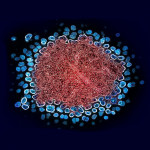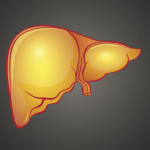Living with HIV is associated with a higher rate of nicotine metabolism, a finding that may help explain why HIV-positive individuals tend to have a harder time quitting cigarettes, aidsmap reports.
Publishing their findings in the journal AIDS, researchers conducted an observational study of smokers, including 131 who had HIV and 199 closely matched people who did not have the virus.
The study looked at participants’ nicotine metabolism ratio (NMR) and controlled for factors known to impact this figure, including sex, race and body mass index (BMI) as well as behavioral factors.
Within the two groups, 70 to 74 percent of the participants were male, 72 to 79 percent were Black and most had an income below $35,000. Almost all of those living with HIV were on antiretrovirals, and 80 percent had a fully suppressed viral load. The average CD4 count in the HIV-positive group was 714.
The HIV-positive individuals smoked a median of 13 cigarettes daily compared with 15 cigarettes in the HIV-negative group. The two groups had an NMR of 0.47 and 0.34, respectively (a higher figure indicates faster metabolization).
The study authors stratified the participants into four groups according to their NMR and found that 35 percent of the HIV-positive individuals, compared with 17 percent of the HIV-negative people, fell into the fastest metabolization quartile.
The investigators concluded that people with HIV may require more intensive smoking cessation treatment than their HIV-negative counterparts—specifically, with Chantix (varenicline), as opposed to nicotine replacement patches.
Previous research recommending Chantix as a preferred treatment for smoking cessation among people with HIV was criticized because the study was funded in part by Pfizer, which manufactures the drug. This new study was funded by the National Institutes of Health. Pfizer provided free medication, however.
To read a POZ feature on smoking hazards, along with tips on quitting, click here.
To read the aidsmap article, click here.
To read the study abstract, click here.







Comments
Comments